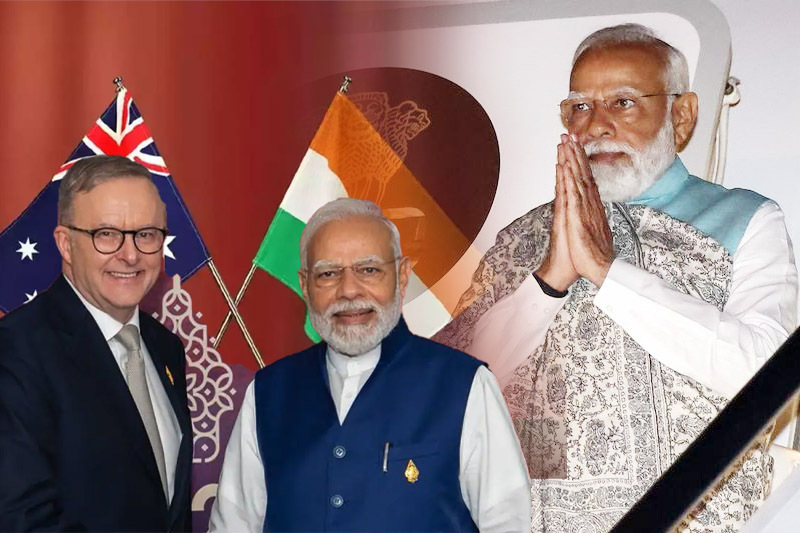
Indian Prime Minister Modi seeks greater defense ties while in Australia
Indian Prime Minister Narendra Modi has landed in Sydney for his second trip to Australia. The head of the South Asian country said in an interview with Australian media on Tuesday that he intended to move relations between New Delhi and Canberra to the “next level,” which involves strengthening military and security cooperation to support the preservation of an open and free Indo-Pacific.
India and Australia share interests in a free, open, and inclusive Indo-Pacific as two democracies. Our strategic stance is aligned, Modi told The Australian newspaper.
“Our high level of confidence for one another has inevitably led to further collaboration on defense and security issues. Joint naval drills are being conducted by our navies. I am certain that collaboration is worthwhile in order to fully enjoy the benefits of increased military and security cooperation,” he continued.
In order to offset China’s growing influence in the Indo-Pacific, Modi participated in a weekend Quad meeting with the leaders of the United States, Japan, and Australia.
Keep Reading
The Indian populist leader is scheduled to address the Indian diaspora at a 20,000-seat stadium while visiting Australia. The event’s tickets have already sold out, and Australian Prime Minister Anthony Albanese will also be there.
In the meanwhile, Modi and Albanese will meet separately on Wednesday. According to Deputy Prime Minister Richard Marles, there is a strong “strategic alignment” between Australia and India.
Before Modi arrived, he told national broadcaster ABC, “It really does afford the opportunity to take the relationship to the next level.”
Marles would elaborate when asked if Australia will bring up India’s treatment of Muslims and other minorities with the Hindu nationalist leader, but he did say he anticipated Albanese and Modi would have a “full conversation.”
The deputy prime minister instead emphasized the strong defense and commercial links between the two nations, saying that “in the end, we are both democracies and that very much underpins the way in which we see the world.”



